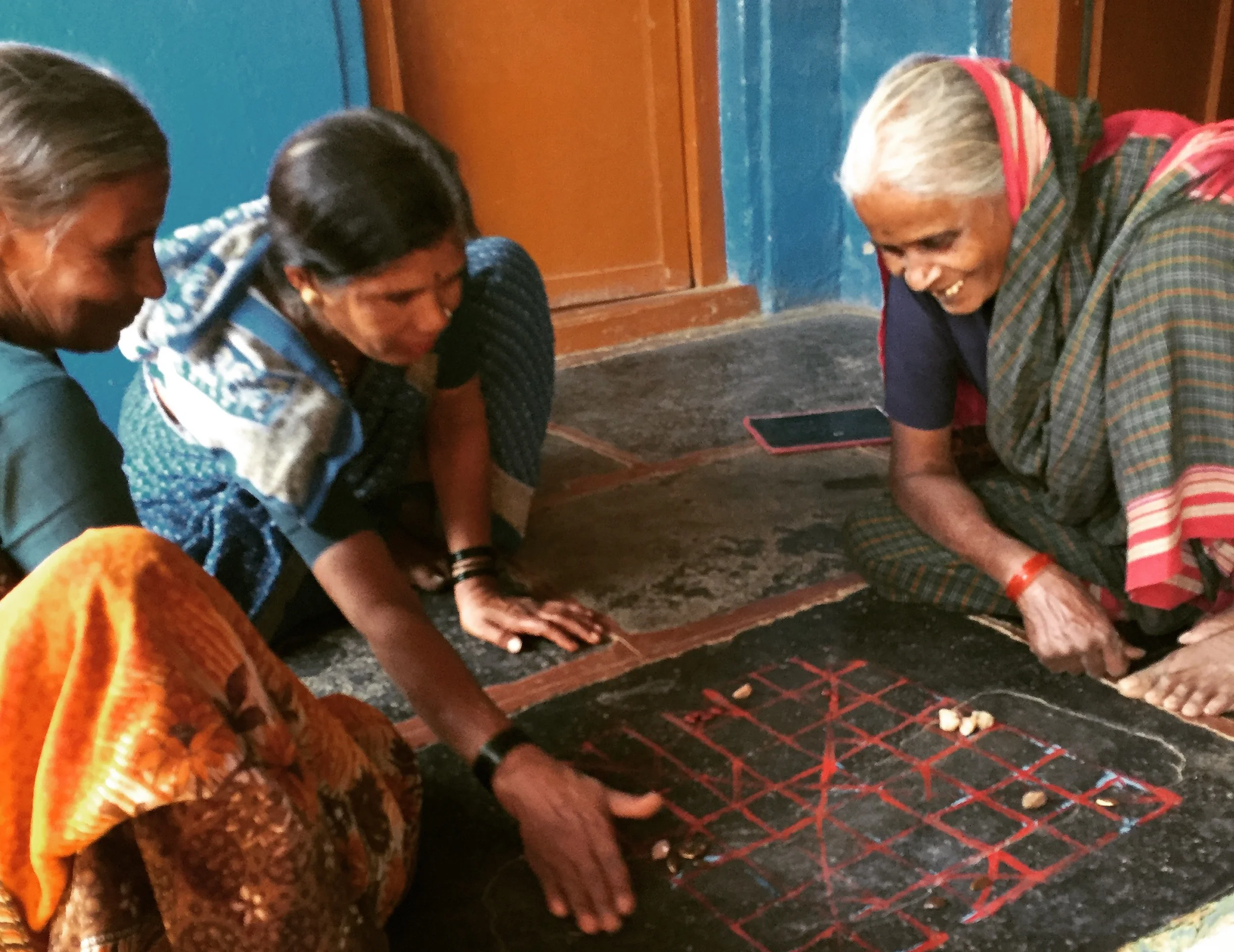"What difference did you make?"
Episode 3
The word “development” implies progress - a forward, positive progression of processes, standards of living, and human behaviours. The crux of most development work is to affect change in some form, for the better, for those less fortunate. In this episode of In the Field, we attempt to look at change and what it means in the context of development work in India. We were motivated by the question of what kind of society we want to live in, and what we want to be, to stand for, especially as we see the gap between rich and poor widen every day.
In this episode, we talk to a range of people working on change in different ways and in different fields - a communicator, a researcher, an activist, and a singer. Each brings their unique perspective to the idea of change, particularly as it applies to human behaviour, action and culture. Through our conversations with them we explore how to change behaviours in individuals, how cultural change occurs in large scale interventions, how to raise the voices of the marginalised, and how to democratise artistic and cultural spaces.
i/ What does it take to undo gender? Interviewing Jeevika didis
ii/ What about you? A still from the Chennai Poromboke Paadal
While change can be organic, in development, it is often triggered by an intervention designed to tackle a specific problem. We are trying to induce it. Sanitation, for instance, is the latest development problem to have triggered public imagination and debate in India, with Prime Minister Modi making a sweeping call to change the status quo when he took office in 2014.
India has a long tradition of changemakers, from individuals and social commentators to activists and development sector professionals to organisations. But there's a group that doesn't often get the attention it deserves. This episode touches briefly on development's frontline workers, but we wanted to mention here again, how important their role is to the on ground implementation of large scale development programmes and schemes. They are the swacchata doots for the Swachh Bharat Mission, ASHA workers for delivery of healthcare, MATES under the NREGA scheme. These are the foot soldiers on the ground, who go door to door, talk to people, convince and enable them to participate, fill application forms, collect data, and maintain records.They are the people that ensure last mile delivery of public services to citizens, often for little pay and no benefits.
The views expressed by Shruti Majumdar here are those of her alone, and should not be attributed to the World Bank, or its Executive Directors.
Correction: In the audio track, we incorrectly referred to the London School of Hygiene and Tropical Medicine.
Additional reading material:
- Biran, Adam et al. 2014. Effect of a behaviour-change intervention on handwashing with soap in India (SuperAmma): a cluster-randomised trial. The Lancet Global Health , Volume 2 , Issue 3 , e145 - e154
- Sanyal, Paromita; Rao, Vijayendra; Majumdar, Shruti. 2015. Recasting culture to undo gender : a sociological analysis of Jeevika in rural Bihar, India. Policy Research working paper; no. WPS 7411. Washington, D.C. : World Bank Group.
Credits
Thanks to Balaji Gopalan, Shruti Majumdar, Stalin K Padma and TM Krishna.
A special mention to Paromita Sanyal, Vijayendra Rao, and the Social Observatory team, Video Volunteers, LSHTM, Nityanand Jayaraman and the Vettiver Collective, the Urur Olcott Kuppam Vizha, Bhargavi Venkatram for lending us her garden, all the women from the Jeevika project and the millions of unnamed frontline workers in India.
Photos: Cover Photo: Priya Desai; Jeevika: Shruti Majumdar/World Bank; Poromboke: The Vettiver Collective;
Sounds/Music: The Superamma Jingle, Interview with Sudha Devi/World Bank, and Chennai Poromboke Paadal /TMK and the Vettiver Collective, Timelapse and Sanskrit/Apple Music. Theme Music by Hollis Coats. Recorded at Third Eye Recording Studio, Bangalore.
In the Field is supported by Rohini Nilekani Philanthropies.



